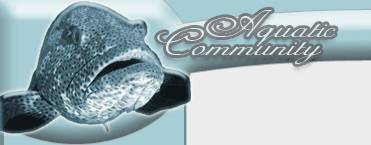Aspergillosis in dogs
What is Aspergillosis?
Aspergillosis is a disease caused by fungi from the genus Aspergillus, primarluy Aspergillus fumigatus and Aspergillus terreus. When dogs develop Aspergillosis, the reason is usually the fungus named Aspergillus fumigatus. The infection is normally limited to the nose and common symptoms of Aspergillosis in dogs are a runny nose, sneezing, and nosebleeds. There can also be signs of ulcerations of the nose.
Aspergillus fungi are found all over the world and can attack both birds and mammals. It is found in domestic animals and wild animals alike. Different animals develop different symptoms, and a fungus that causes a runny nose for your dog can cause lung infections in birds and miscarriages and cattle. Generalized Aspergillosis is rare in dogs, but the disease can spread to the intervertebral sites and the kidneys.
Aspergillosis symptoms in dogs
When dogs are infected by Aspergillosis, the disease is usually limited to the nasal and paranasal cavities and this is where you can notice the symptoms. In addition to sneezing, nasal discharge from one or both nostrils, nasal pain and ulceration of the nares, the dog can become lethargic and develop frontal sinus osteomyelitis and epistaxis. Nasal Aspergillosis is chiefly a problem for dog breeds with long, narrow heads, where the disease starts in the posterior region of the ventral maxilloturbinate.
Aspergillosis in dogs can lead to gross lesions, but this will vary a lot from case to case. In some dogs, the mucosa found in the nasal and paranasal cavities will be covered in fungal growth and a layer of gray-black necrotic material (dead tissue). Sometimes the underlying bone can also start to die, which can be seen if the head of the dog is x-rayed.
It is possible for Aspergillosis to spread from the original point of entry to other parts of the dog's, so called disseminated Aspergillosis. For reasons unknown, this is more common in certain breeds, such as German Shephards. When this happens, Aspergillus fumigatus is seldom the culprit, the causative fungi is instead normally Aspergillus terreus or even Aspergillus deflectus. Common symptoms of disseminated Aspergillosis in dogs are loss of appetite, weight loss, weakness, urinary incontinence, fever, hematuria, neurological problems, and generalized lymphadenopathy. Lesions can appear inside the spleen, kidneys and vertebrae, and discospondylitis is common.
Aspergillosis treatment for dogs
As long as the disease is limited to nasal and paranasal parts of the dog, topical treatment is preferred in most situations. Most veterinarians opt for Clotrimazole to begin with. This drug can either be administered as a single infusion through the nares or via the frontal sinuses of the dog. Local infusions normally cure 4 out of 5 dogs with nasal and paranasal Aspergillosis.
When the Clotrimazole is given through the nares, foley catheters are normally used to instill 0.5 g of Clotrimazole in each side of the dog's nasal cavity. The infusion is then left there for 60 minutes, during which the veterinarian will turn the dog around once in a while to increase penetration and make sure that the drug spreads out as much as possible.
Enilconazole is an alternative to Clotrimazole treatment and have a similar success rate. When Enilconazole is used, tubes are implanted surgically into the frontal sinuses of the dog. Enilconazole is then used in the form of instilled bid for 1-2 weeks. The normal dose is 10mg per kilogram body weight.
If local treatment is not enough, anti- Aspergillosis drugs can be given systemically. Examples of drugs that work in such treatments are Itraconazole, Fluconazole and Ketoconazole. Itraconazole and Fluconazole tend to be more effective than Ketoconazole. The standard dose for Itraconazole is 5-10 mg per kg bodyweight given once a day, while the dose for Fluconazole varies from 2.5 to 10 mg/kg and should be divided into several servings per day. If Ketoconazole is used, 5-10 mg/kg bodyweight should be given once a day for 6-8 week
Bacterial infections in dogs: (click for more info)
Aspergillosis in dogs
Brucellosis in dogs
Clostridium in dogs
Ehrlichiosis in dogs
Leptospirosis in dogs
Rocky Mountain spotted fever in dogs
